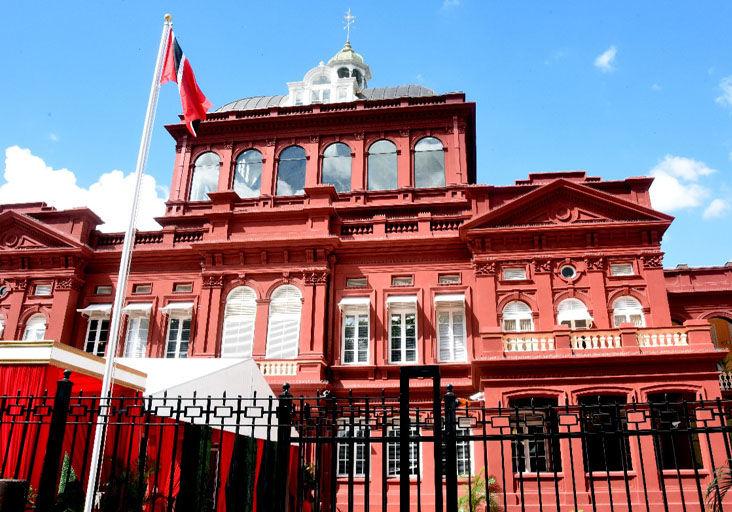The Law Association of Trinidad and Tobago sounded a warning that a section in the controversial Public Procurement and Disposal of Public Property (Amendment) Bill, 2020 amounts to “constitutional impropriety degrading public trust and confidence”.
LATT’s comments on the Bill were shared while the debate is underway in the Senate.
All eyes were on the debate to see which Independent Senator will lend support to the Government to pass this Bill as a yes vote from one is required for passage.
LATT’s secretary Shankar Bedaisee wrote to the Senate Clerk by letter dated December 8, 2020 asking that LATT’s comments be “promptly shared” with the Senators to aid in their deliberation.
“In our view, the removal of oversight, scrutiny, accountability and administrative fairness in the procurement process in relation to the treaties and agreements referred to in section 7(1) amounts to constitutional impropriety degrading public trust and confidence,” stated LATT in their comments of the Bill.
LATT noted the sections of the Bill that applies to agreements between Trinidad and Tobago and private entities within a foreign state.
It stated the “upshot” of the amendment creates a parallel procurement mechanism outside of the Act in relation to agreements with foreign private entities as well as, arguably, agreements with private local entities, and all without promoting the objects of the Parent Act or in accordance with the socio-economic policies of the country.
LATT stated under the existing law, Non-Profit Organisations are under the scrutiny of the Financial Intelligence Unit and must disclose their international funding arrangements.
It stated that likewise, international funding arrangements whether it be by the State or the State-enterprises should also be subject to a similar level of scrutiny.
” If not, it is open for abuse. For example, if an international financial institution agrees to lend money to Trinidad and Tobago under the proposed section 7(2)(b) for a large infrastructural project and there is a term in the agreement that in return the international financial institution’s contractors must be utilised in the project (the cost of the contractors are far in excess of the market value for that service), then it would be unfair and unjust as the said loan would ultimately have to be repaid with tax-payers money,” stated LATT.
It proposed that the amendment to section 7(2) be deleted from the Bill.
LATT further stated that the conjoint effect of the proposed section 7(5) and section 7(6) are “quite troubling”.
It stated that while the exemptions created in section 7(5) as it relates to services provided to public or State-controlled enterprises are not objectionable, the fact that the Minister may by Order create exemptions subject to negative resolution of the Parliament is worrying.
LATT stated that this means that the Minister may by Order subject to negative resolution exempt:
(a) services provided to public or State-controlled enterprises that do not promote the socio-economic policies of the country or adhere to the objects of the Parent Act through treaties or other forms of agreements to which Trinidad and Tobago is a party;
(b) services provided to public or State-controlled enterprises that do not promote the socio-economic policies of the country or adhere to the objects of the Parent Act through agreements entered by the Government of Trinidad and Tobago and an international financing institution; and
(c) services provided to public or State-controlled enterprises that do not promote the socio-economic policies of the country or adhere to the objects of the Parent Act through agreements for technical or other cooperation between the Government of Trinidad and Tobago and the Government of a foreign State.
LATT stated what this in effect does is create a second gateway for public-private partnership arrangements with local entities involving services provided to public or State-controlled enterprises that do not promote the socio-economic policies of the country or adhere to the objects of the Parent Act thereby circumventing the Parent Act.
“It is proposed therefore that the Order of the Minister be subject to affirmative resolution rather than negative resolution in order to provide sufficient oversight that may be akin to that which exists in the Parent Act,” it stated.
LATT added that the proposed Clause 6 which amends section 13 of the Parent Act prevents the Office of Procurement Regulation from acting on behalf of the Government vis-à-vis disposal of real property owned by the Government.
It noted that what this means is that scrutiny for disposal of real property owned by the Government outlined in section 14 of the Parent Act will not apply.
LATT stated the question that therefore arises is who then would be acting for or in the name of the State to dispose of real property owned by the Government and what oversight and scrutiny is there to preserve and maintain its objectivity and the non-discriminatory disposal. “There is nothing in the Bill to provide of such. It is therefore proposed that if the deletion of section 13(1)(o) is maintained, a clause be inserted to deal with the manner of disposal of the real property of the Government,” it stated.


